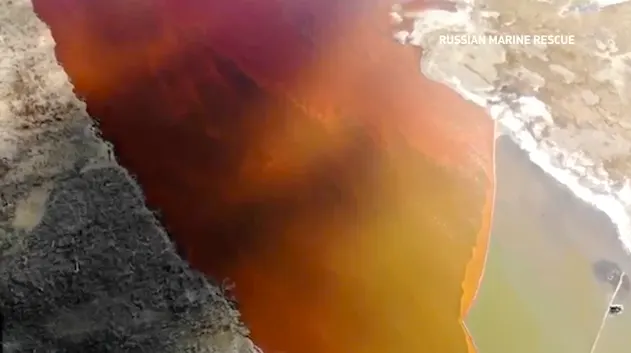
Russian Arctic oil spill worse than disclosed, environmentalists say
Environmentalists say that the extent of the Siberian Arctic oil spill is understated and will cost billions of dollars to repair.
Thousands of tons of diesel spilled into a river in the Siberian city of Norilsk in late May and environmentalists are saying that this could be the worst ecological catastrophe that has ever happened in the polar Arctic.
Roughly 21,000 tons of diesel leaked into rivers and subsoil after a fuel tank at a power station lost pressure. Greenpeace compares the magnitude of this event to the 1989 Exxon Valdez oil spill and says that the oil drilling has made Norilsk one of the most polluted places on Earth.
The oil plume was up to 20 cm thick in some sections of the Ambarnaya River and workers scrambled to reduce the volume of petrochemicals pouring into the pristine Lake Pyasino, which eventually flows to the Arctic Ocean.
While the company that owns the failed fuel tank, Nornickel, quickly announced that the oil spill had been contained, environmentalists say that the reality of the damage is ongoing and understated.
Vasily Ryabinin, a whistleblower who quit his job with the state environmental agency Rosprirodnadzor, has raised awareness of the oil spill’s severity.
"It looked horrible when we got there and it wasn't even the worst of it as a couple of hours had passed," Ryabinin said in an interview with CNN. "You could smell the diesel half a kilometre away... my boss was even afraid to smoke there in case it blew up."
Ryabinin adds that the footage of the oil spill that he’s seen on social media is drastically different than what is being shown on Russian state TV.
"They only caught the very tail of this spill and no-one even mentioned what's under the film, state TV kept showing the spill saying there is allegedly nothing under it and it's just on the surface. And under this layer, hydrocarbons dissolve and infiltrate all life — fish, roe, mud, everything,” YouTube blogger and environmentalist Georgy Kavanosyan told CNN.
In an email to CNN, Nornickel said that the cleanup of the spill was ongoing and that the company was "guided by the official data of Rosprirodnadzor and the Ministry of Emergency Situations," as well as satellite imagery that shows "the borders of the fuel spread."
Rosprirodnadzor estimates that the oil spill’s damage is 14 times great than Nornickel's initial assessment and has asked the company to pay a record $2 billion in compensation.
Several environmental factors make this oil spill different from the rest -- both the cause of the disaster and its location are unprecedented.
Investigators initially said that melting permafrost likely caused the fuel tank to lose pressure. The Arctic Institute states that Norilsk has previously had several instances of operational safety violations in diesel storage facilities, which the company has blamed on abnormally warm weather and thawing permafrost hindering the functioning of the plant’s infrastructure. The cause of the spill is still under investigation.
Permafrost is ground that remains at or below 0°C for two consecutive years or longer and was previously considered to be a stable surfaced to build infrastructure on in Arctic regions. In addition to the rapid warming that this region has experienced over the past few decades, the Arctic has seen unprecedented temperature records shattered this summer, including Verkhoyansk, a village in Eastern Siberia, reaching a staggering 38°C in late June.
Russia's chief prosecutor, Igor Krasnov, issued orders for prosecutors to conduct a "thorough check" of "particularly dangerous installations" located on "territories exposed to permafrost melting," as reported by BBC.
Arctic regions are warming twice as fast as the rest of the world and approximately 3.6 million people in the Northern Hemisphere could experience damages to infrastructure associated with thawing permafrost by 2050. Nearly half of all oil and gas extraction fields in Russia’s Arctic regions are at risk of infrastructure instability due to thawing permafrost, which could mean more frequent oil spills in delicate northern ecosystems.











